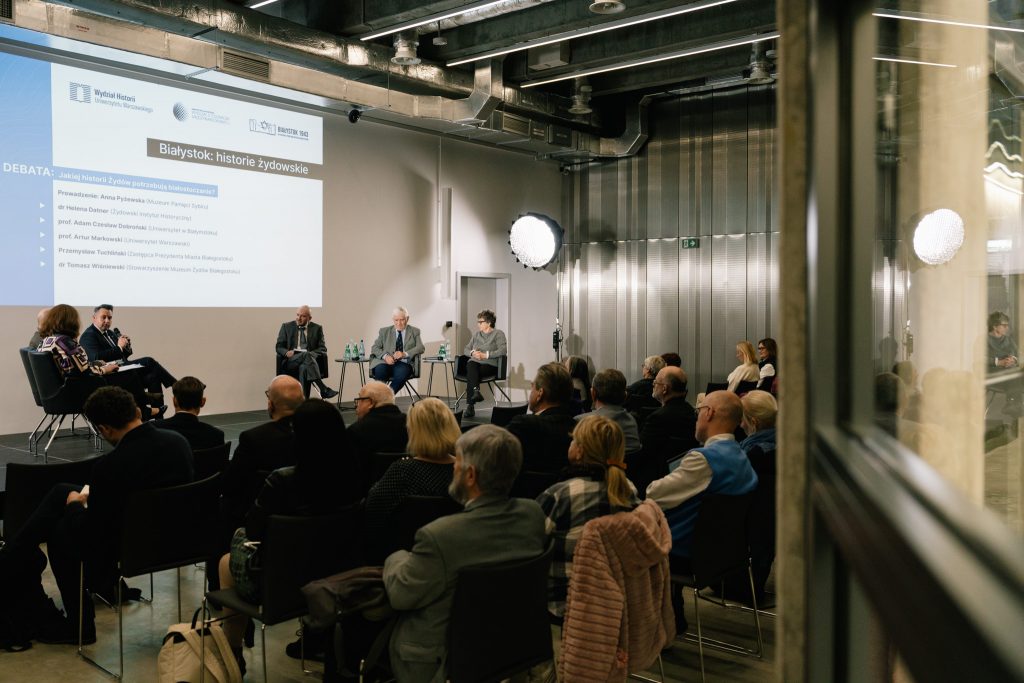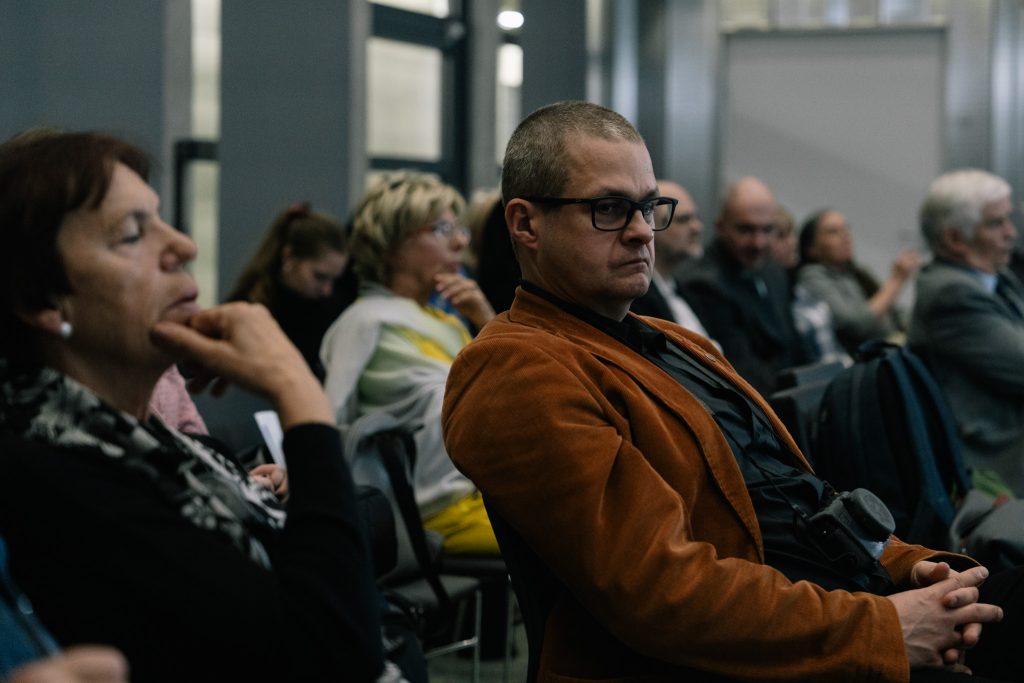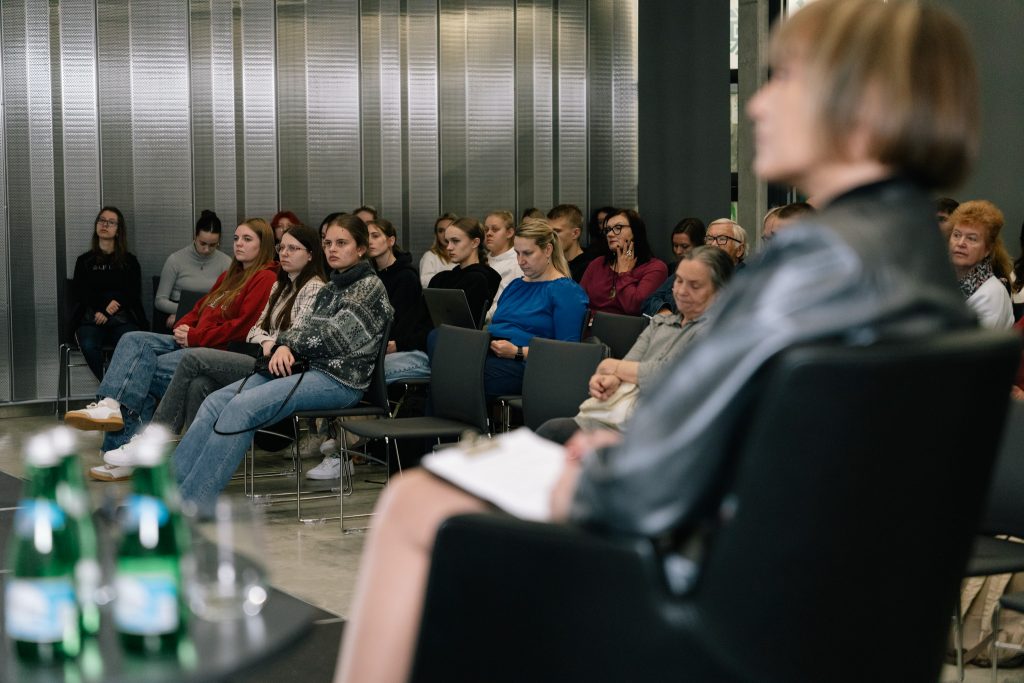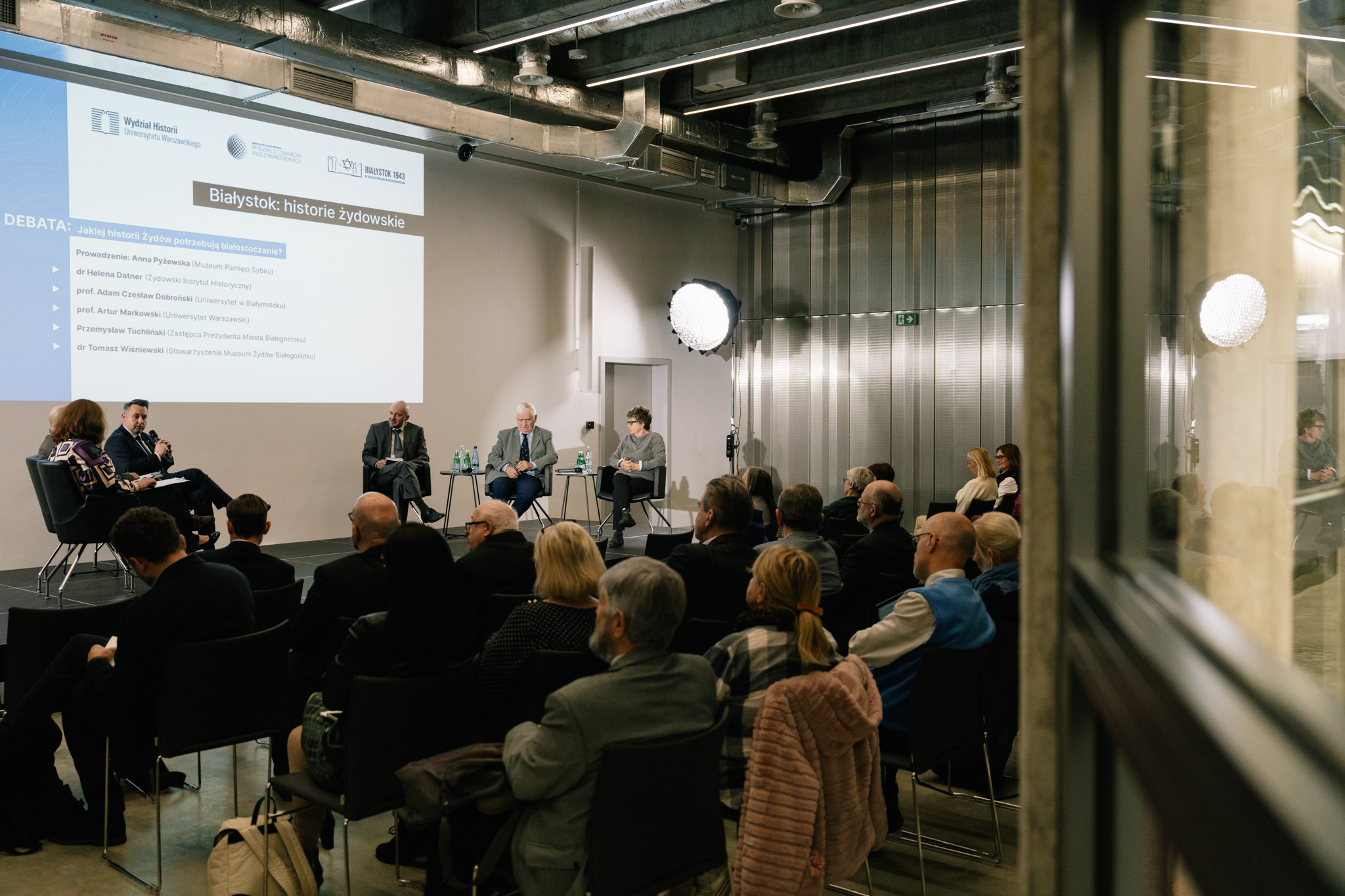The conference was part of a rich series of events commemorating the 80th anniversary of the Białystok Ghetto Uprising, organized by the City of Białystok. The symposium, prepared by the Białystok municipal council and the Sybir Memorial Museum in cooperation with the Faculty of International Relations of the University of Białystok and the Faculty of History of the University of Warsaw, gathered researchers, but also socio-cultural activists who care about commemorating the achievements of the Jews of Białystok.
The Mayor of Białystok, professor Tadeusz Truskolaski, spoke about the great undertaking of preparing the above-mentioned celebrations in his speech opening the conference: — We have been working on this for two years, two years of hard work. In 2021, I went to the POLIN Museum to meet Mr. Marian Turski and ask him to act as the Honorary President of the Committee. He participated in the celebrations and spoke eloquently about what was the most important… Our role is, on the one hand, to pay tribute to those who fought. On the other hand, it is a history lesson for the younger generation — a lesson, that shows where hatred leads — said the Mayor of Białystok, professor Truskolaski.
The summary of the city’s efforts was presented by Jacek Brzozowski, PhD, Director of the Department of the Mayor of Białystok. He recalled the August celebrations, which gathered distinguished guests, and listed other anniversary events: — There were 11 exhibitions, 7 concerts or performances, workshops and historical walks. 8 popularization meetings were held and 4 books were published — said Brzozowski. — And these are only urban activities, there are also private initiatives and non-governmental organizations — he emphasized.
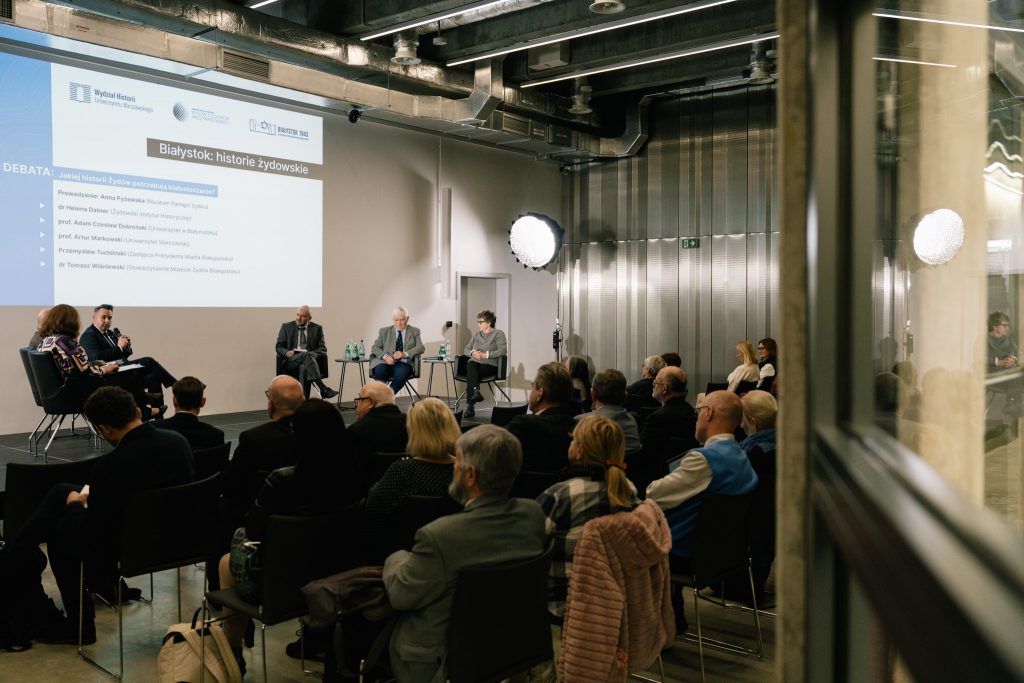
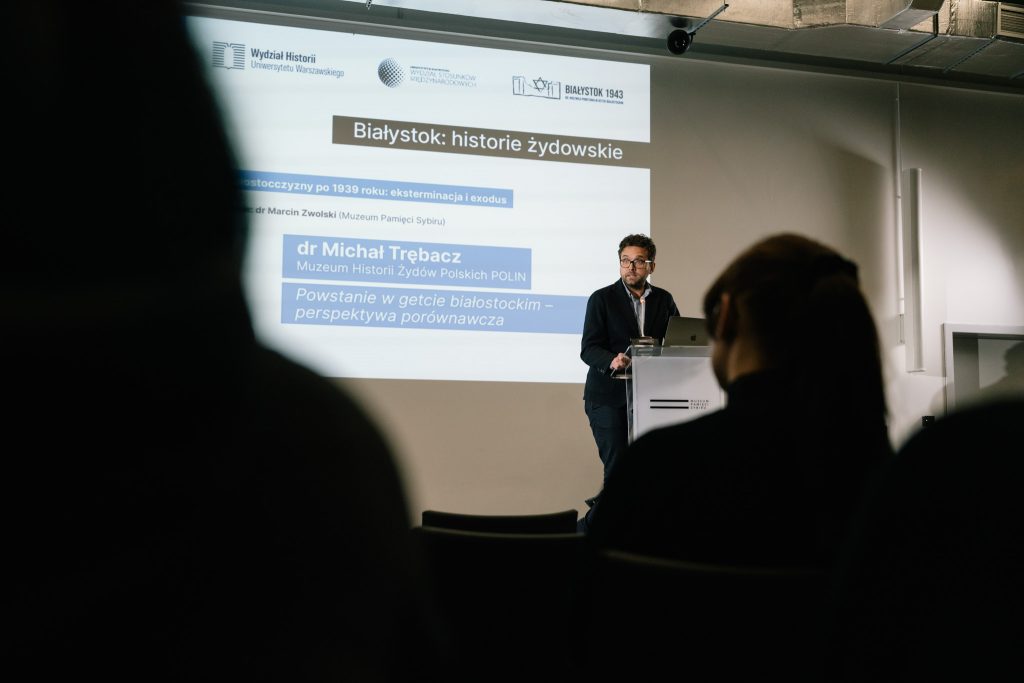
The conference proceedings were divided into three sessions. During the first one the lectures on the history of Białystok Jews from the earliest times to the interwar period were delivered.
Przemysław Zarubin, PhD, from the Jagiellonian University in Kraków and Professor Daniel Grinberg from the University of Białystok made an appearance. Thanks to the Internet connection, a lecture was also delivered by Professor Rebecca Kobrin from Columbia University (USA).
The second part of the meeting included a debate entitled ‘What Jewish history do the people of Białystok need?.’ Not only the speakers, but also the Deputy Mayor of Białystok, Przemysław Tuchliński, and Tomasz Wiśniewski, PhD from the Museum of the Jews of Bialystok and the region discussed the topic. Scientists, activists and educational and cultural activists present in the room joined in the heated debate, including: historian professor Jan Jerzy Milewski, Grażyna Dawidowicz, PhD — Polish language teacher and researcher of the fate of children in the Białystok ghetto, Lucy Lisowska — representative of the Jewish Religious Community in Warsaw for Białystok and the Podlaskie Voivodeship, as well as Henryk Pogorzelski — who works to commemorate the Jewish community in Sokoły.
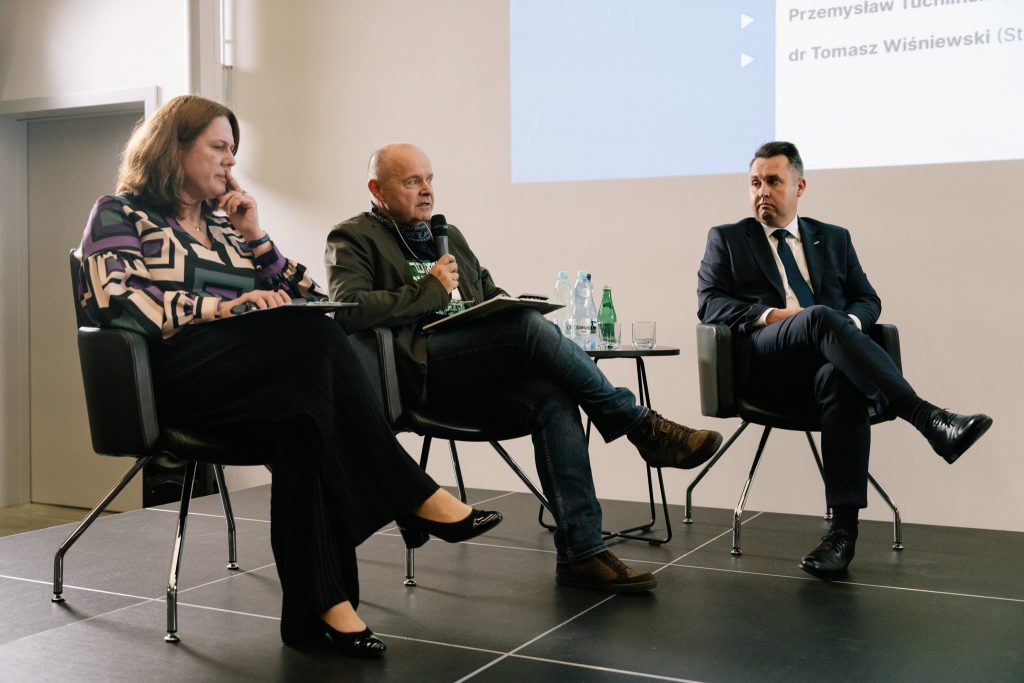
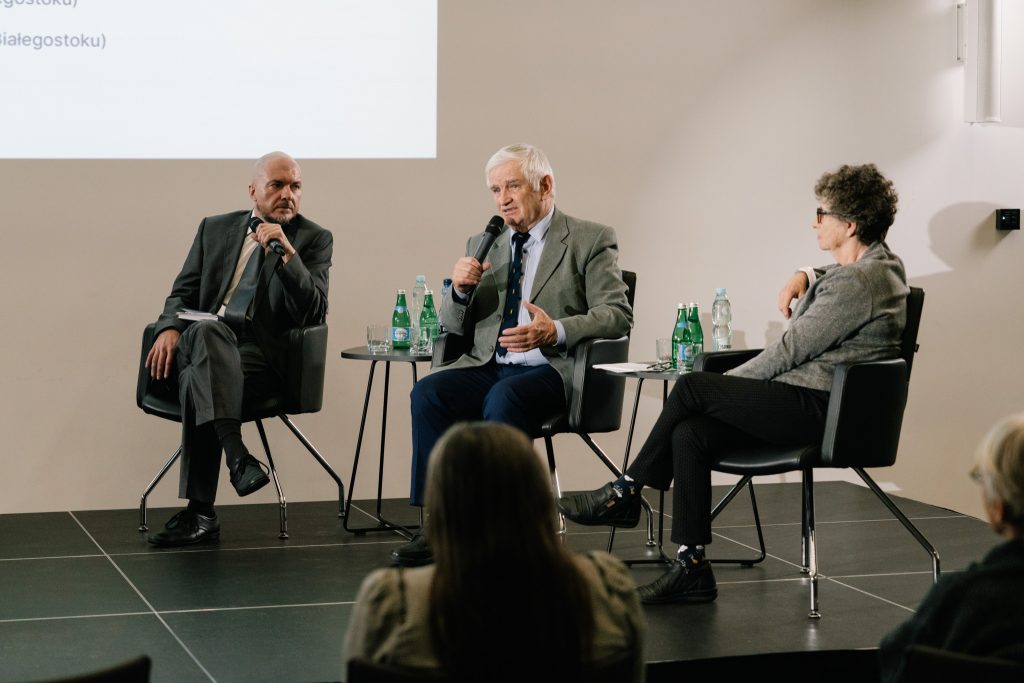
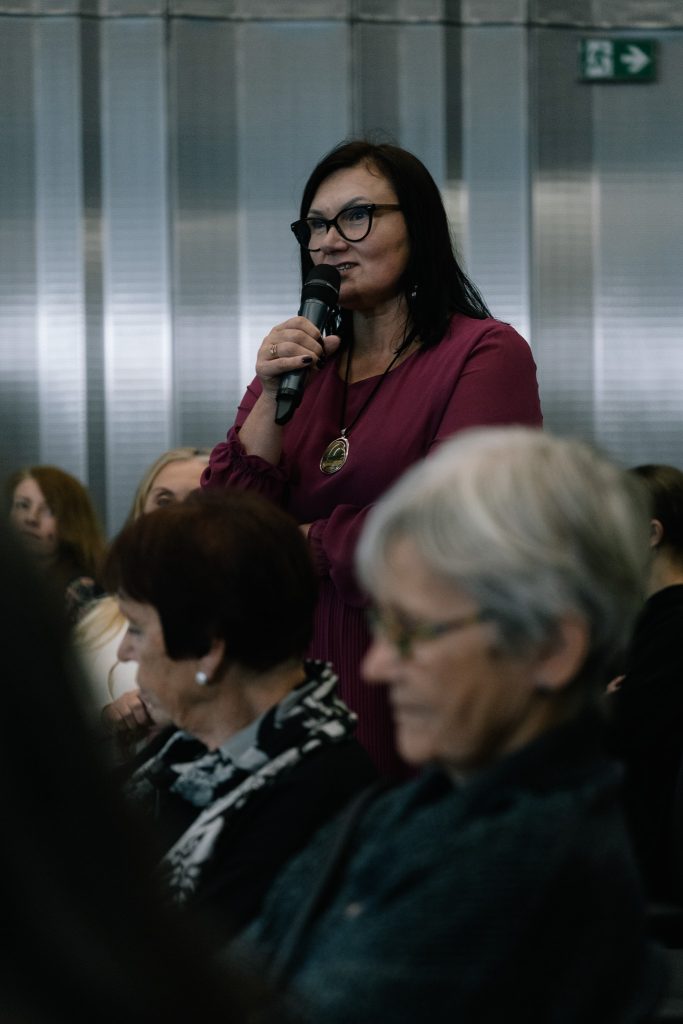
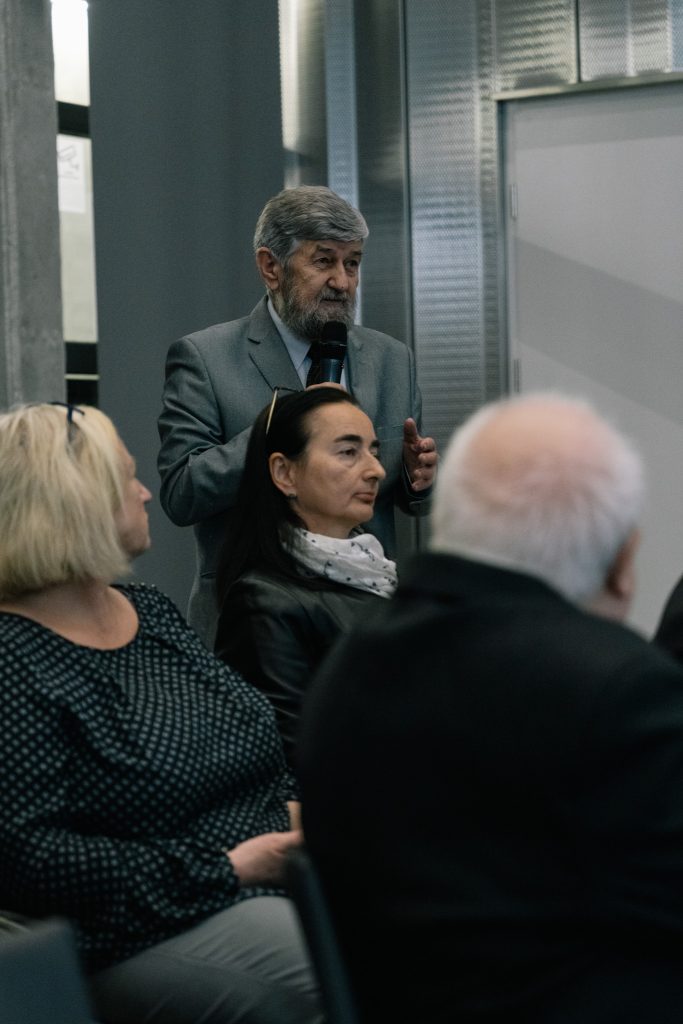
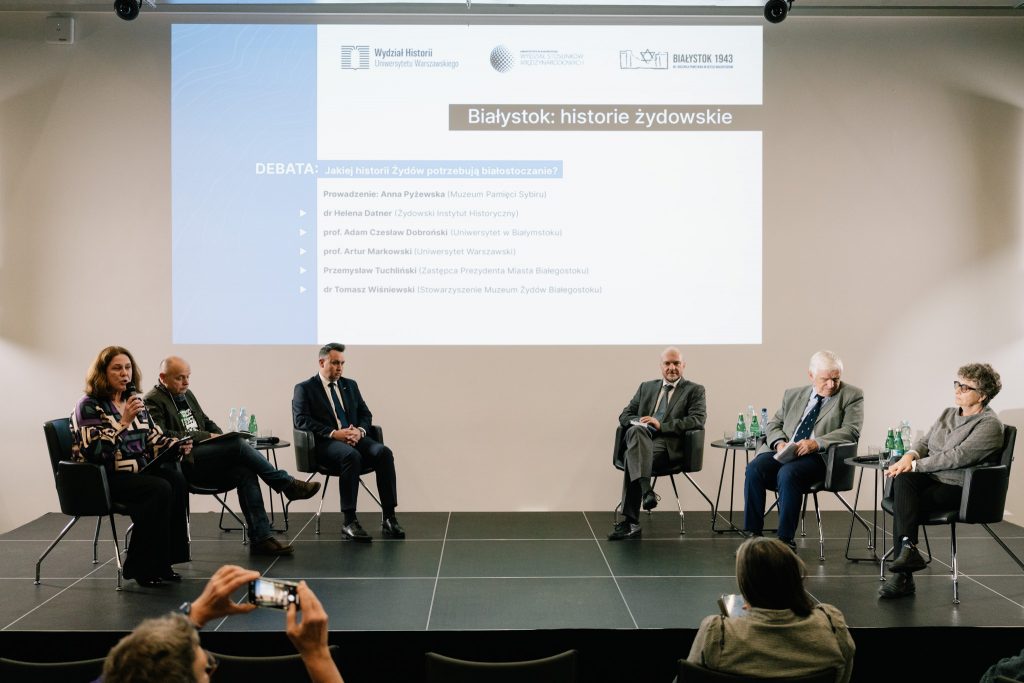
During the third session, the scientists presented the history of the Jews of Białystok after 1939 — there was talk of both the Holocaust and the post-war fate of those who survived the Holocaust. The speakers included Anna Pyżewska from the Scientific Department of the Sybir Memorial Museum, Michał Trębacz, PhD from the POLIN Museum of the History of Polish Jews, Helena Datner, PhD from the Jewish Historical Institute and Ewa Węgrzyn, PhD from the Jagiellonian University. After all the speeches, the audience asked questions, and engaged discussions continued in the wings during breaks. The conference showed that the history of Białystok cannot do without stories about Jews. The subject of the Jews of Białystok is discussed and passed on to next generations, it is and for sure will be for a long time a research subject and discussion, as well as inspiration for many educational and cultural ventures.
